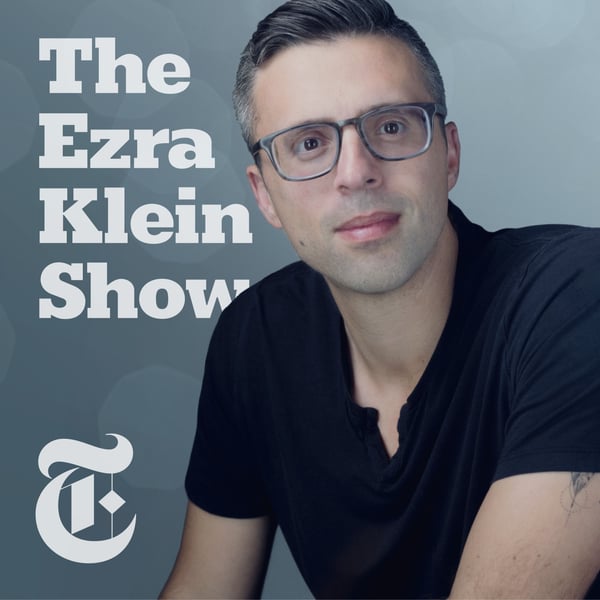A Ukrainian Philosopher on What Putin Never Understood About Ukraine
The Ezra Klein Show
New York Times Opinion
4.6 • 11K Ratings
🗓️ 12 April 2022
⏱️ 48 minutes
🧾️ Download transcript
Summary
Transcript
Click on a timestamp to play from that location
| 0:00.0 | I'm Ezra Klein. |
| 0:07.1 | This is the Ezra Conchell. |
| 0:20.2 | Before we begin today, we're going to do another Ask Me Anything episode in a couple of |
| 0:24.0 | weeks. |
| 0:25.0 | So if you have anything you'd like to ask me, anything you'd like to hear me answer, |
| 0:28.7 | please send a question to Ezra Klein Show at nytimes.com. |
| 0:32.2 | Again, Ezra Klein Show at nytimes.com and put AMA in the subject lines. |
| 0:38.4 | For today though, we've done a lot of shows at this point on the context for Vladimir Putin's |
| 0:44.7 | decision to invade Ukraine. |
| 0:46.6 | The historic miss he drew on the strategic logic for Russia he revealed, the economics |
| 0:52.0 | of the invasion, the energy dimension of the invasion, the Russian media control that made |
| 0:57.4 | it possible for him. |
| 0:59.6 | We've done less on the context for Ukraine's remarkable resistance to Russia's brutal |
| 1:04.4 | decision making care. |
| 1:06.5 | What does it felt like to not just be in Ukraine during this period, but to be Ukrainian? |
| 1:11.2 | And when I say this period, I mean more than last few months. |
| 1:15.0 | This is not Putin's first invasion of Ukraine. |
| 1:17.2 | He invaded Crimea in 2014 and the world just shrugged. |
| 1:20.8 | And this is not Ukraine's first remarkable act of resistance, the two recent revolutions |
| 1:25.3 | in 2004 and 2014 set the stage for everything we're seeing today. |
| 1:31.2 | Vladimir Yurimenko is a Ukrainian philosopher and the editor of the 2019 book Ukraine in |
| 1:36.2 | histories and stories, which is a collection of essays by Ukrainian intellectuals that |
... |
Please login to see the full transcript.
Disclaimer: The podcast and artwork embedded on this page are from New York Times Opinion, and are the property of its owner and not affiliated with or endorsed by Tapesearch.
Generated transcripts are the property of New York Times Opinion and are distributed freely under the Fair Use doctrine. Transcripts generated by Tapesearch are not guaranteed to be accurate.
Copyright © Tapesearch 2025.

